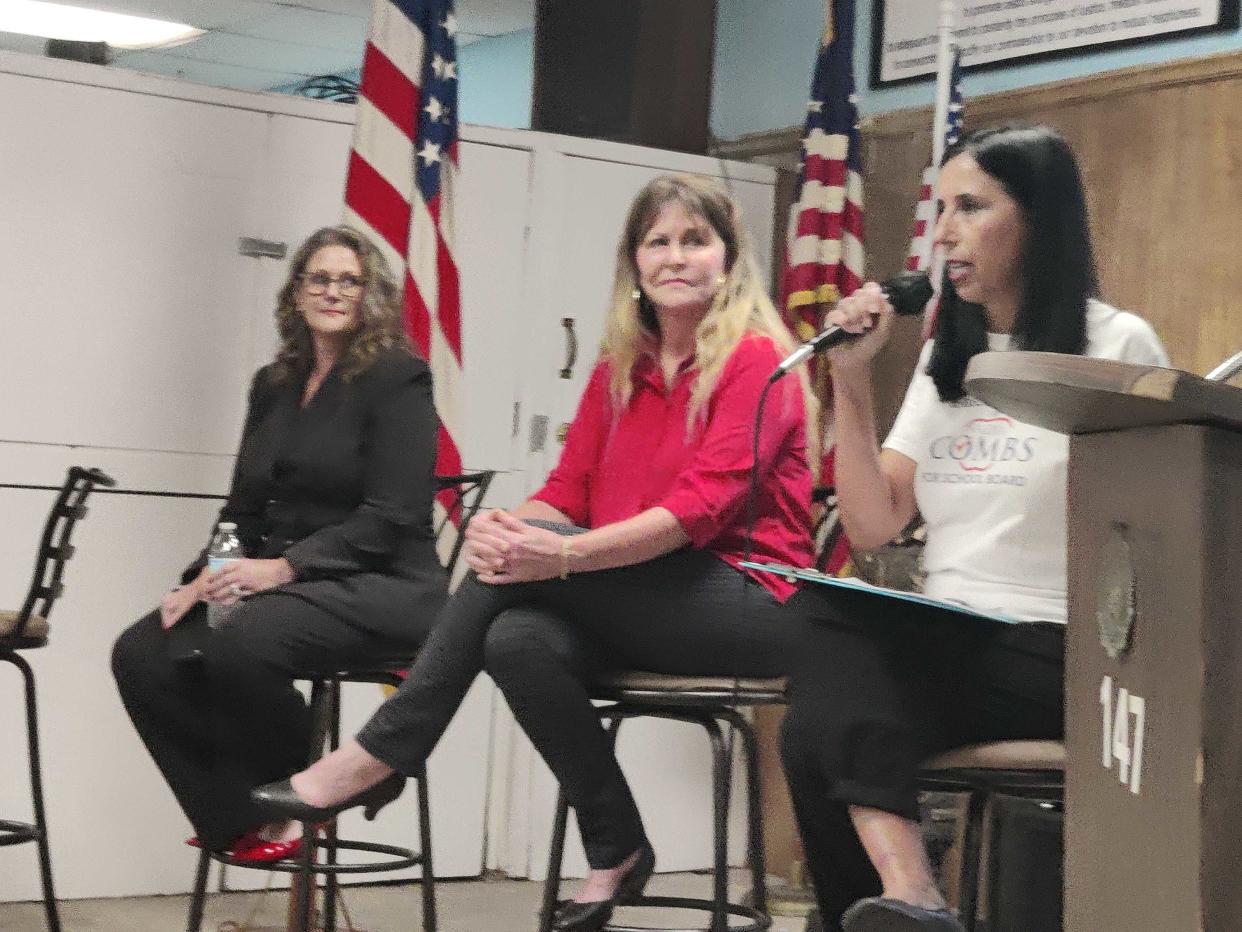Hillsborough lawyers: Yes, we can delay the school tax vote

The Hillsborough County School Board cannot dictate the timing of a property tax referendum, the County Commission argued this week in response to Tuesday’s lawsuit in Hillsborough Circuit Court.
Citing logic, past cases and a Florida Supreme Court opinion dating back more than 70 years, attorneys for the county said it should be clear that the commission had every right to postpone the referendum from November, which the district wanted, to 2026.
Judge Emily Peacock had ordered the county to file this response by the end of business on Friday to follow a timetable intended to resolve the question by Aug. 20. That’s when the Supervisor of Elections will prepare ballots that may or may not include the taxing question.
School district leaders want to ask voters to approve a tax of $1 for every taxable $1,000 in property value, similar to taxes that exist in other districts that compete with Hillsborough for teachers. Without the tax, Hillsborough pays its starting teachers as much as $9,000 less than the others. Schools are soon to open with hundreds of teacher vacancies.
The county’s decision to postpone the referendum came after a 4-3 vote, along partisan lines, on July 17.
The school board, after its own 4-3 vote, sued the county on Tuesday.
Friday’s response says state law governing this process gives county commissions discretion in the timing.
Lawyers for the county wrote that when the legislature included county commissions in the law, it was “not an accident.” It was deliberate, they wrote.
“Why?” the county’s filing read. “There can only be one answer: to determine the date of the election when calling an election for an ad valorem tax millage referendum.”
They argue that if lawmakers had not wanted to give county officials this authority, “the Legislature could have simply enacted the statute without a reference to ‘county commissioners’ by providing that a school board could directly call an election” for a property tax. “But that is not what the Legislature decided.”
The logical reason, they wrote, is that county officials “must address the interests of the citizens of the entire county.” They argue that the county commission’s role is not, as school district leaders have suggested, “a rubber stamp.”
During the July 17 meeting, county commissioners said they were postponing the tax question because of hardships that residents were already experiencing from rising housing costs.
The legal document refers to a Florida Supreme Court opinion from a case in 1952 involving a special election that was needed because a nominee for the high court had died.
The governor at the time asked if he could call an election, and also if he could decide the date. The court told him he could do both things because the law clearly gave him “every particular power necessary or proper for complete exercise or performance of the duty that is not in violation of law or public policy.”
The lawyers also looked at two past cases of tax questions to support the schools, one in Hernando County and the other in Indian River County.
In the Hernando question, they wrote, attorneys invoked a 1998 Florida Attorney General’s opinion that said: “It is up to the board of county commissioners, not the school board, to determine the date of the referendum.” The Hernando school board sued and lost that case, which dealt with a sales tax, not a property tax.
In the case involving the Indian River tax, the school board prevailed after a judge ruled that “the Commissioners have no discretion to choose a different date, but must perform the ministerial act of calling for an election as directed by the School Board, including the date requested.”
The Hillsborough lawyers, however, believe the Indian River decision was flawed and does not answer the question of why the state gave county commissioners the responsibility of placing the question on the ballot.
Hillsborough’s proposed tax is one of the top issues in this year’s school board election campaigns.
All four incumbents on the ballot — Nadia Combs, Jessica Vaughn, Henry “Shake” Washington and Lynn Gray ― have said the tax is necessary to place Hillsborough on par with other districts that are vying for a scarce supply of teachers.
“People are not going into the classroom,” board member Nadia Combs said at a candidate forum Thursday in Odessa. “I can tell you my daughter is at Florida State. She has not met one person who is going into education. In her senior year at Steinbrenner High School, she lost her journalism teacher and she lost her math teacher.”
Former principal Johnny Bush, who is challenging Gray for her districtwide seat, told the group: “If we’re doing what’s best for our kids, we’re going to take care of those we put in charge of educating them. ... A teacher can go across the bridge and make $8,000 more,”
The two other candidates in Gray’s and Bush’s group, Karen Bendorf and Jen Flebotte, say the district simply needs to do a better job managing its finances.
“We can do what’s right for teachers with what we have,” said Bendorf, a middle school teacher.

